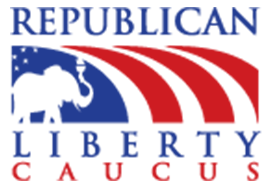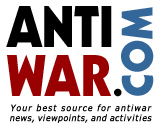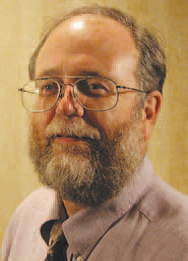Related Research Articles

Murray Newton Rothbard was an American economist of the Austrian School, economic historian, political theorist, and activist. Rothbard was a central figure in the 20th-century American libertarian movement and a founder and leading theoretician of anarcho-capitalism. He wrote over twenty books on political theory, history, economics, and other subjects.

The Libertarian Party (LP) is a political party in the United States that promotes civil liberties, non-interventionism, laissez-faire capitalism, and limiting the size and scope of government. The party was conceived in August 1971 at meetings in the home of David F. Nolan in Westminster, Colorado, and was officially formed on December 11, 1971, in Colorado Springs, Colorado. The organizers of the party drew inspiration from the works and ideas of the prominent Austrian school economist, Murray Rothbard. The founding of the party was prompted in part due to concerns about the Nixon administration, the Vietnam War, conscription, and the introduction of fiat money.
Paleolibertarianism is a libertarian political activism strategy aimed at uniting libertarians and paleoconservatives. It was developed by American anarcho-capitalist theorists Murray Rothbard and Lew Rockwell in the American political context after the end of Cold War. From 1989 to 1995, they sought to communicate libertarian notions of opposition to government intervention using messages accessible to working and middle-class people of the time, and combining libertarian free market views with the cultural conservatism of Paleoconservatism. This approach, usually identified as right-wing populism, was intended to radicalize citizens against the state. The name they chose for this style of activism evoked the roots of modern libertarianism, hence the prefix paleo. That founding movement was American classical liberalism, which shared the anti-war and anti-New Deal sentiments of the Old Right in the first half of the 20th century.

The Republican Liberty Caucus (RLC) is a political action organization dedicated to promoting the ideals of individual liberty, limited government and free market economics within the Republican Party in the United States. It is part of the libertarian wing of the Republican Party. It also operates a political action committee, the RLC-USA PAC.

Young Americans for Freedom (YAF) is a conservative youth activism organization that was founded in 1960 as a coalition between traditional conservatives and libertarians on American college campuses. It is a 501(c)(3) nonprofit organization and the chapter affiliate of Young America's Foundation. The purposes of YAF are to advocate public policies consistent with the Sharon Statement, which was adopted by young conservatives at a meeting at the home of William F. Buckley in Sharon, Connecticut, on September 11, 1960.

Justin Raimondo was an American author and the editorial director of Antiwar.com. He described himself as a "conservative-paleo-libertarian."

Tom Gordon Palmer is an American libertarian author and theorist, a Senior Fellow at the Cato Institute and Vice President for International Programs at the Atlas Network.

Antiwar.com is a website that describes itself as devoted to non-interventionism and as opposing imperialism and war. It is a project of the Randolph Bourne Institute. The website states that it is "fighting the next information war”.

Chris Matthew Sciabarra is an American political theorist based in Brooklyn, New York. He is the author of three scholarly books—Marx, Hayek, and Utopia; Ayn Rand: The Russian Radical; and Total Freedom: Toward a Dialectical Libertarianism—as well as several shorter works. He is also the co-editor, with Mimi Reisel Gladstein, of Feminist Interpretations of Ayn Rand and co-editor with Roger E. Bissell and Edward W. Younkins of The Dialectics of Liberty: Exploring the Context of Human Freedom. His work has focused on topics including Objectivism, libertarianism, and dialectics.

The gay liberation movement was a social and political movement of the late 1960s through the mid-1980s that urged lesbians and gay men to engage in radical direct action, and to counter societal shame with gay pride. In the feminist spirit of the personal being political, the most basic form of activism was an emphasis on coming out to family, friends, and colleagues, and living life as an openly lesbian or gay person.
Libertarian perspectives on LGBT rights illustrate how libertarian individuals and political parties have applied the libertarian philosophy to the subject of lesbian, gay, bisexual and transgender (LGBT) rights. In general, libertarians oppose laws which limit the sexual freedom of adults.
Eric Garris is an activist in the libertarian movement in the United States, reaching back to the Vietnam War. He is the founder and webmaster of a daily nonpartisan, news source Antiwar.com which was launched in 1995.
Right-libertarianism, also known as libertarian capitalism or right-wing libertarianism, is a libertarian political philosophy that supports capitalist property rights and defends market distribution of natural resources and private property. The term right-libertarianism is used to distinguish this class of views on the nature of property and capital from left-libertarianism, a type of libertarianism that combines self-ownership with an egalitarian approach to natural resources. In contrast to socialist libertarianism, right-libertarianism supports free-market capitalism. Like most forms of libertarianism, it supports civil liberties, especially natural law, negative rights, the non-aggression principle, and a major reversal of the modern welfare state.
LGBT movements in the United States comprise an interwoven history of lesbian, gay, bisexual, transgender and allied movements in the United States of America, beginning in the early 20th century and influential in achieving social progress for lesbian, gay, bisexual, transgender and transsexual people.
Liberty International is a non-profit, libertarian educational and networking organization based near Austin, Texas. It encourages activism in libertarian and individual rights areas by the 'freely chosen strategies' of its members. Its history dates back to 1969 as the Society for Individual Liberty, founded by Don Ernsberger and Dave Walter. The previous name (ISIL) was adopted in 1989 after a merger with Libertarian International was coordinated by Vincent Miller, who became president of the new organization.

Young Americans for Liberty (YAL) is a conservative, libertarian student activism organization headquartered in Austin, Texas. Formed in 2008 in the aftermath of the Ron Paul 2008 presidential campaign, YAL establishes chapters on high school and college campuses across the United States, for the purpose of "advancing liberty on campus and in American electoral politics."
Students For Liberty (SFL) is an international libertarian non-profit organization with origins in the United States. Formed in 2008, SFL grew to a network of 1,000 student organizations worldwide by 2014.

L. K. Samuels, also known as Lawrence Samuels, is an American author, classical liberal, and libertarian activist. He is best known as the editor and contributing author of Facets of Liberty: A Libertarian Primer and In Defense of Chaos: The Chaology of Politics, Economics and Human Action. He coined the phrase "social chaology", which refers to the studies of complex, holistic, and self-organizing nature of society in relationship to the linear, predatory and "planned chaos" predispositions of government.
Society for Libertarian Life (SLL) was one of the early libertarian student organizations that eventually charted chapters and had a nationwide presence in the United States. Founded in 1973 at California State University, Fullerton (CSUF), SLL was considered one of the largest and most active libertarian organizations along the West Coast. By 1980, it was reported to have 2,000 members.
References
- ↑ Schulman, Daniel (May 20, 2014). Sons of Wichita . Grand Central Publishing. pp. 99. ISBN 9781455518739 . Retrieved April 2, 2017.
in praise of outlaws rebuilding gay liberation